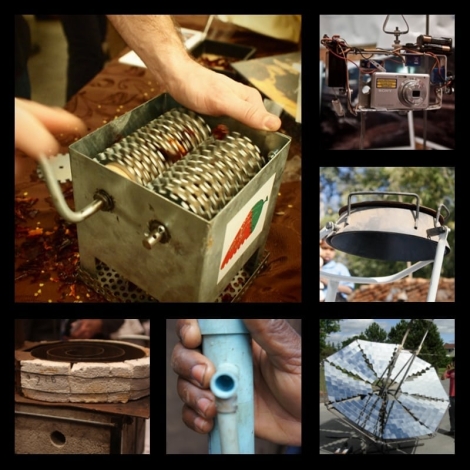The International Journal for Service Learning in Engineering, Humanitarian Engineering and Social Entrepreneurship, has issued a call for papers for its upcoming special edition on scholarship, assessment and interdisciplinary engagement.

Design and entrepreneurship in low-resources settings could use more academic recognition, and one journal, the IJSLE, is exploring the issue. Photos by Iana Aranda and Rob Goodier / E4C
Universities drive a vast amount of the innovation in technologies for sustainable development, but they have a hard time recognizing the scholarly value of their work. Interdisciplinary student teams engage in every stage of product design, from market research to identify needs, to prototyping, testing and eventually, in some cases, manufacture and marketing. The process is hugely instructive and yields valuable data. But the faculty have few venues in which to publish their their findings, in part because there are few recognized standards for measuring outcomes in this field. And there are simply too few respected outlets in which to publish.
In the more traditional engineering disciplines, a research team can improve a technology and demonstrate their progress with standard, recognized methods. But in interdisciplinary teams, some of the progress is in fields that may be foreign to engineering peer-reviewed journals, such as cultural awareness, marketing, distribution and supply chain issues. And the problems that the technologies solve may not be familiar to the journals published in developed countries. As such, data from this kind of “service learning” is not widely disseminated, and the pursuit ranks low on the list of qualities that tenure committees consider when evaluating faculty for tenure.
Notebook: IJSLE
Special Edition call for papers
An Assisted Obstetric Delivery Device for Resource-Limited Settings
Systemic and Systematic Assessment Methodology for Technology-Based Social Enterprises
International Partnership Helping to Bring Appropriate Biofuel Technology to Rural Cameroon
Community-Driven Development of Rocket Stoves in Rural South Africa
Places to publish do exist, however. We list many of them in the “Education” section of our Learning Lab. One academic journal in particular has sights set on exploring the problem, the International Journal for Service Learning in Engineering: Humanitarian Engineering and Social Entrepreneurship.
IJSLE publishes peer-reviewed papers on design and engineering projects, research and scholarship in the fields of engineering for global development and social entrepreneurship.
“The journal has been seeking to raise the level of academic rigor for eight years,” Thomas Colledge, Editor-in-Chief of the journal and an assistant professor of engineering design at Pennsylvania State University in University Park, Penn., told E4C.
“A primary purpose of the journal is to foster inquiry into rigorous engineering design and research and direct those efforts toward solving problems of marginalized communities both domestically and internationally,” Colledge says.
Call for papers
Colledge and his editorial team seek to address scholarship, assessment and interdisciplinary engagement in service learning in engineering in a special edition of the Journal. The journal has issued a call for papers in those three areas. The deadline is August 30th, and the publication is scheduled for December.
For details on the kinds of papers sought, please see the announcementon IJSLE’s site.
Related resources
Education / Learning Lab
Lists of academic institutions, online courses and journals dedicated to engineering for global development
New peer-reviewed journal fills a gap in humanitarian engineering research
The Journal of Humanitarian Engineering promotes technological research and it doesn’t stop short there
Webinar: How academic research strengthens humanitarian ventures
Khanjan Mehta, Director of the Humanitarian Engineering and Social Entrepreneurship (HESE) Program at Pennsylvania State, presents this E4C Webinar.

